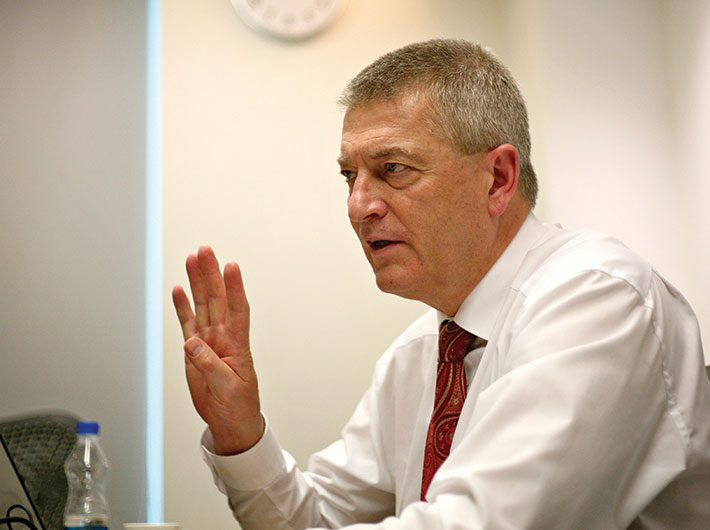As a senior vice president at SAP, Jens Ramaus is responsible for product strategy and development, with a special emphasis on the requirements of federal, state and local governments. In a conversation with Ankita Lahiri, Romaus talked about how cloud and mobile technologies will impact the way citizen interact with both the governments and corporates. Excerpts:
How do you see the newer technologies, particularly cloud and mobile technologies, impacting the technology consumption?
Cloud is changing consumption because it is a delivery model. So it will have a huge impact on the structure of the organisations, not just in terms of cost but also on the employees. Mobile on the other hand has an impact on processes. For example, in banking, it is self-service. It took away the jobs from people in the front offices. We do it from our mobile. For the government, it has a huge impact on self-services.
Right now, if you want to avail a government service, you have to wait for a day or two. With the mobile, there will be a tremendous impact on the government processes. It makes the government more citizen-friendly. And te government is able to receive response 24x7.
How will these technologies benefit the public sector?
Cloud would reduce significant costs. Public sector customers need about 60-80 percent of their annual budget to keep up their operations. So they have just 20 percent for innovations. If they use cloud, they will open up their budget for a lot of innovations. They will have much needed access to innovations.
Tell us something about big data and how it is impacting the public sector.
As per a McKinsey survey, by treating big data in the right way, you can reduce the cost in the European public sector by 15-20 percent, which translates to somewhere between 150 billion-300 billion Euros. You can reinvest this money in areas like education. All this can be done without increasing the taxes, but just by changing the public sector organisations.
By using big data, we can reduce fraud. If someone is applying for social benefits and has business at the same time, the authorities can match that through the database. In Australia, they matched the data of people who had accounts on eBay with those who apply for social benefits. Big Data will help in generating taxes, and reducing fraud and process costs.
What are your interventions in the public safety security vertical?
Cities are the dominant sector. Let us consider personal security. In the evenings, the light is low. To reduce the budget, cities shut the light off. By 11 o’clock, you cannot walk through the streets. So combine sensors with high speed database. Then if somebody is walking through the streets, the sensors could project that and the lights can be automatically turned on.
Besides, things like early warning system for tsunami is something we are considering.
What are your recommendations for the Indian government?
I think my recommendation for the Indian government would be to think out of the road, to see what they could do better with the standard approaches in the social area by using intelligent processes. The government can immediately go into mobile driven environment.
(This article appeared in February V5_ I2_February 16-28, 2014 print issue)

